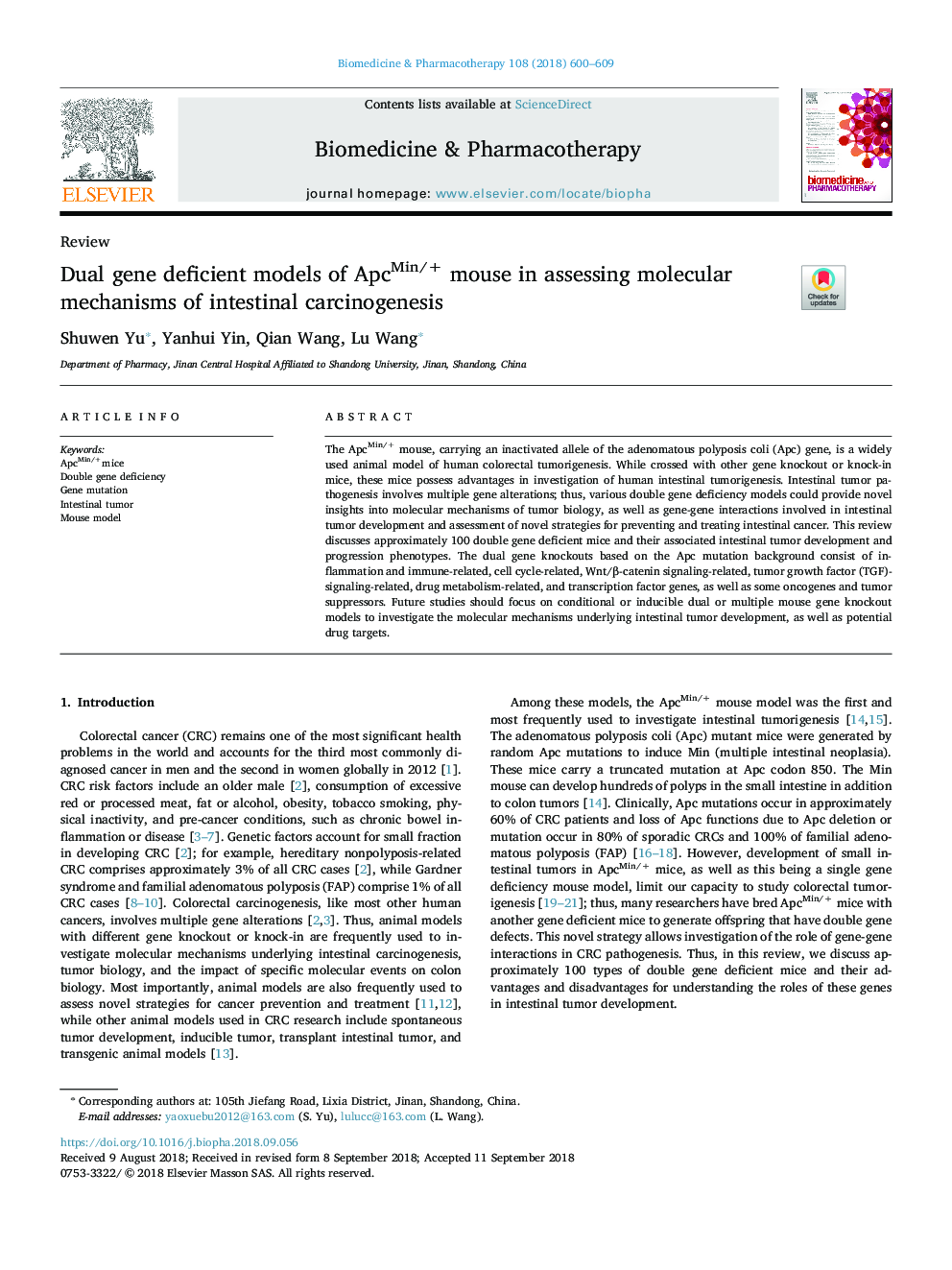| Article ID | Journal | Published Year | Pages | File Type |
|---|---|---|---|---|
| 10158284 | Biomedicine & Pharmacotherapy | 2018 | 10 Pages |
Abstract
The ApcMin/+ mouse, carrying an inactivated allele of the adenomatous polyposis coli (Apc) gene, is a widely used animal model of human colorectal tumorigenesis. While crossed with other gene knockout or knock-in mice, these mice possess advantages in investigation of human intestinal tumorigenesis. Intestinal tumor pathogenesis involves multiple gene alterations; thus, various double gene deficiency models could provide novel insights into molecular mechanisms of tumor biology, as well as gene-gene interactions involved in intestinal tumor development and assessment of novel strategies for preventing and treating intestinal cancer. This review discusses approximately 100 double gene deficient mice and their associated intestinal tumor development and progression phenotypes. The dual gene knockouts based on the Apc mutation background consist of inflammation and immune-related, cell cycle-related, Wnt/β-catenin signaling-related, tumor growth factor (TGF)-signaling-related, drug metabolism-related, and transcription factor genes, as well as some oncogenes and tumor suppressors. Future studies should focus on conditional or inducible dual or multiple mouse gene knockout models to investigate the molecular mechanisms underlying intestinal tumor development, as well as potential drug targets.
Related Topics
Health Sciences
Medicine and Dentistry
Oncology
Authors
Shuwen Yu, Yanhui Yin, Qian Wang, Lu Wang,
